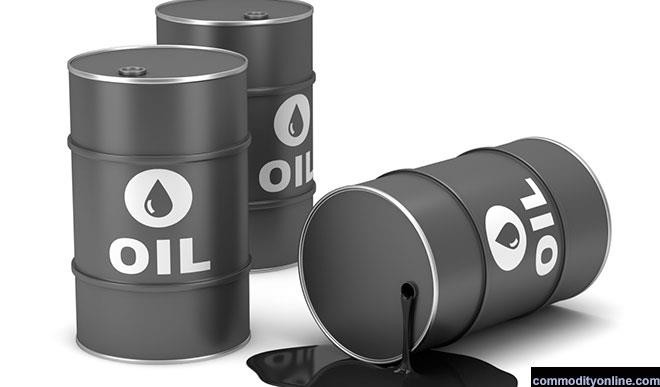
Nigeria’s crude oil production is recovering, climbing right back to about 1.6 million barrels.
Chief Upstream Investment Officer, NNPC Upstream Investment Management Services, Bala Wunti, said this at the 11th Practical Nigerian Content forum in Uyo, Akwa-Ibom state on Tuesday.
According to him, Nigeria’s oil production as of Tuesday was 1. 6 million barrels per day, from 937, 000 barrels per day reported in September.
Wunti maintained that the output increase was a result of the government’s rectangular approach to the fight against crude oil theft.
“Crude theft affects all architecture that funds the country. When the oil theft reached its peak, everything including gas production was affected,” he said.
He said, “One, we have security agencies in which the Navy, the police, and everyone within that space was involved. The second is the regulators angle. At this stage, all regulators are made to fully be part of the efforts. Third is the operators’ angle. And, of course, all operators were involved. The fourth angle is the community angle in which all impacted communities have to be brought under the umbrella of a structured arrangement in the collective effort against crude oil theft. In all, these efforts were able to do three things; Detect, deter and respond appropriately.
“As at today, oil production is at 1.59 million barrels per day,” he said.
Nigeria has been unable to meet OPEC production quota in the last one year.
At the September Federation Account Allocation Committee, a Nigerian National Petroleum Company Limited presentation said Nigeria lost as much as 8.14 million barrels in August.
The PUNCH had reported how the contribution of the oil sector to the Gross Domestic Product of the country fell to 5.7 per cent in the third quarter of this year, according to data sourced from the National Bureau of Statistics.
The Bureau, in its GDP Sector Report, had said that the oil sector’s contribution of 5.7 per cent in Q3, 2022, was a decline when compared to a 6.3 per cent real GDP contribution recorded in Q2-2022.
The report stated that Nigeria’s average crude oil production in Q3-2022 was 1.2 million barrels per day (including condensates), lower than Q3-2021’s 1.6 million barrels per day, a 23.6 per cent decline.
A statement by the Ministry of Finance, Budget and National Planning last Wednesday, said the excess crude account crashed by 89 per cent in the last eight years, moving from $4.1bn in November 2014 to $472,513 in the same period of 2022.The balance as of November 23, 2022, stood at $472,513.64.
The account has depleted in the last eight years as a result of lack of inflows, oil market vagaries and the country’s revenue crunch, according to economists.
“It is a simple fact that when you spend money from an account and you are not adding to it, it will deplete,” Professor of Economics at Covenant University, Ogun State, Jonathan Aremu told The PUNCH on Thursday when the announcement was made by the Federal Government.
“For you to increase the ECA, the oil price must rise above the budgeted price. If it does not, nothing goes in. Also, if what you are spending is higher than what goes in, it depletes. This is the situation,” he further said.





